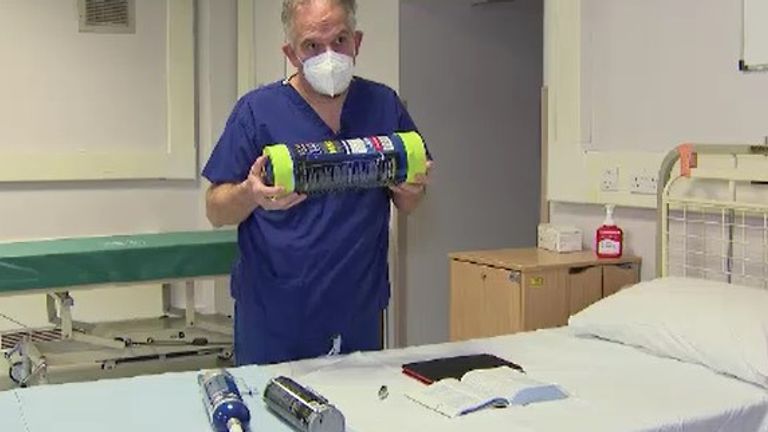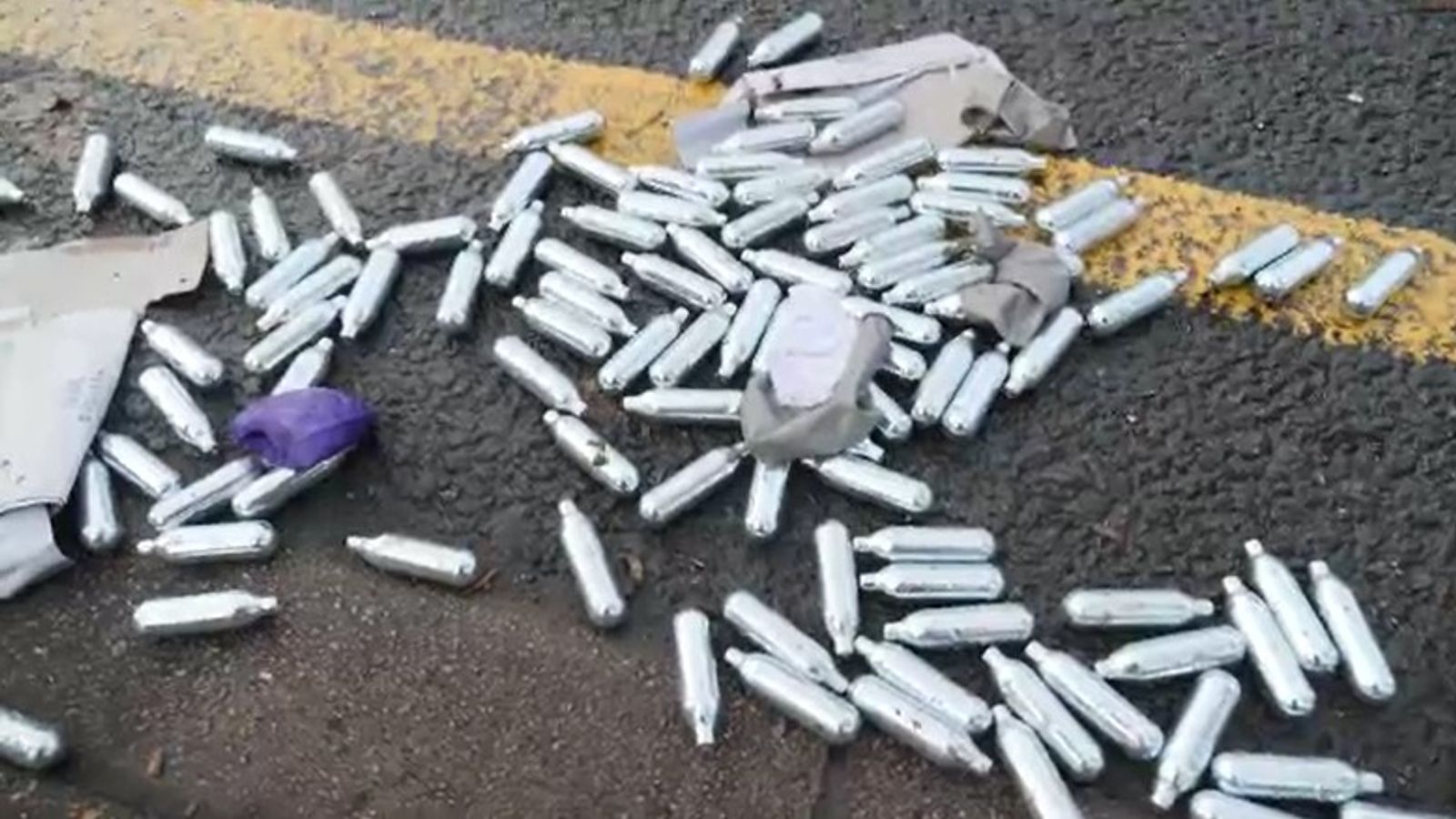
The Home Office is preparing to ban the sale and possession of laughing gas to crack down on anti-social behaviour.
Ministers want to revise drug misuse laws to allow people found with nitrous oxide gas in public to be prosecuted.
The party drug, commonly known as laughing gas, is the second most commonly used drug among 16 to 24-year-olds in England after cannabis and there are concerns about health problems caused by its usage.
Politics live: Rishi Sunak heads for cabinet away day at Chequers as trip branded ‘hideaway’
A Home Office spokesperson said: “Anti-social behaviour causes misery in communities and we are determined to crack down on this scourge to protect our streets.
“We have been clear we want to see common sense policing to keep our communities safe.
“That is why we are actively considering a ban on the sale and use of this harmful drug and will ask the Advisory Council on the Misuse of Drugs to hasten their delivery of the report we commissioned, which we will carefully consider in reaching any decision.”
Under the plans, only those with a “legitimate reason” for possessing the drug would be exempt from the ban, such as chefs who use it in products liked whipped cream or doctors using it for pain relief.
Those with a legitimate reason may be required to obtain a licence, though ministers are said to be keen on “avoiding bureaucracy”, a Home Office source said.
The source added: “There is a clear view that we have to act.
“There is a clear link between the use of nitrous oxide and antisocial behaviour and this is a top priority for the government.”
Current legislation bans the knowing or reckless supply of nitrous oxide for inhalation, but there have been calls for a ban on all direct consumer sales as part of a tightening up of the law.
The substance is already being reviewed by the independent Advisory Council on the Misuse of Drugs, but policing minister Chris Philp wants this to be fast-tracked to April with the hope a formal announcement could be made as part of the government’s anti-social behaviour strategy due later this year.
Read more:
How much does an A&E visit cost and what is an average NHS salary?
Proposals to make some NHS patients pay for care spark backlash
The punishment for being caught is likely to be similar to sentences for class C drugs, with those in possession facing up to two years in prison or an unlimited fine and those supplying the drug facing a maximum 14-year sentence.
Prime Minister Rishi Sunak wants to speed up a crackdown as he believes tackling anti-social behaviour is key to winning the next election, according to The Times which first reported on the story.
The newspaper said Home Secretary Suella Braverman also backs the move and has privately been pushing for more enforcement action on low-level drugs.
Nitrous oxide is known as laughing gas as use of the drug can cause fits of giggles, but a top neurologist told Sky News in December it is “no joke”.
Dr David Nicholl, clinical lead for neurology at Sandwell and West Birmingham NHS Trust, said misuse of the substance is currently the most common cause for emergency admissions to the neurology ward.
“People come into hospital off their legs, difficulty walking, presenting with tingling in the hands and feet, slurred speech and more rarely seizures,” he warned.
“I’ve even spoken to one ophthalmologist colleague who has seen a patient who went blind, but that was secondary to hypoxia caused by inhaling nitrous oxide.”











